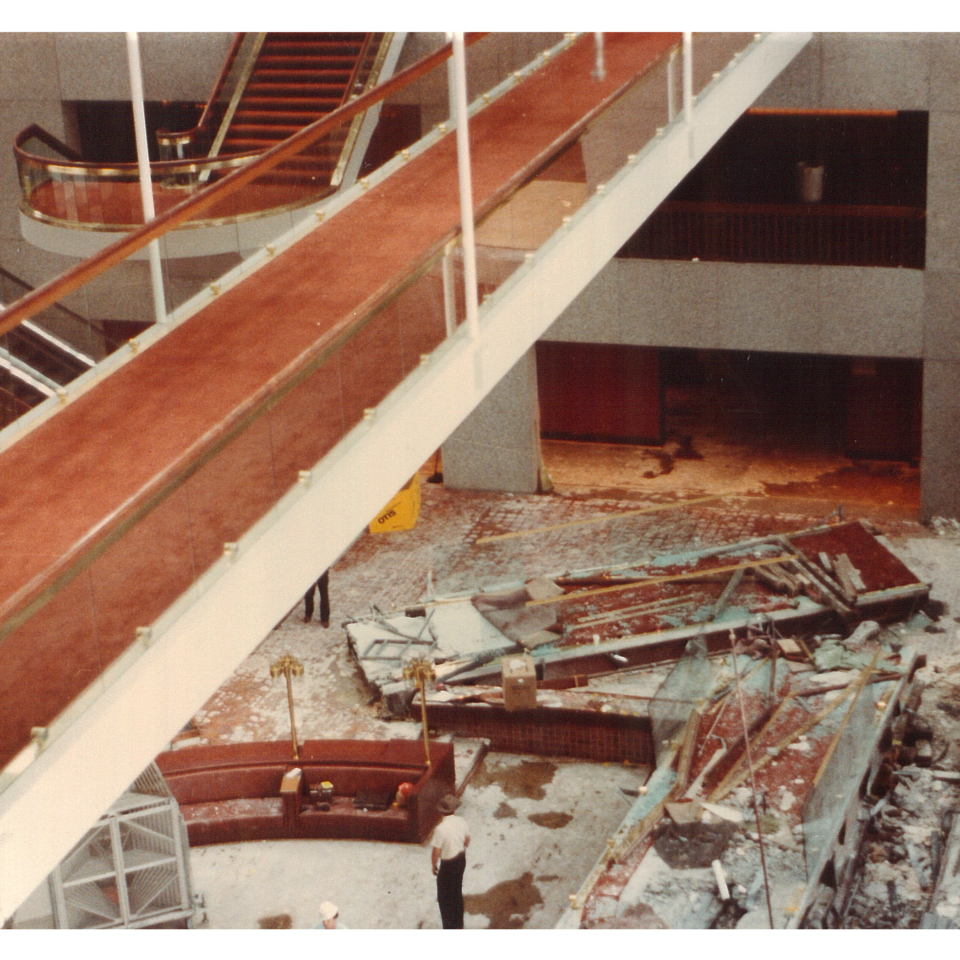Hyatt Regency Walkway Collapse
By Michael Riddle, 2024-05-04, Reading time: 1 minute

Aftermath of Hyatt Regency Walkway Collapse, 17 July 1981 (from Texas A&M).
What happened?
The Hyatt Regency Hotel in Kansas City, Missouri, suffered the structural collapse of two overhead walkways after just a year of service. Loaded with partygoers, the concrete and glass platforms cascaded down, crashing onto a party in the lobby, killing 114 and injuring 216.
Lessons
-
Investigators concluded that the underlying problem was a lack of proper communication between the engineer of record and the fabricator.
-
Drawings by the engineer were only preliminary sketches, but the fabricator interpreted them as finalized drawings; reports and court testimony cited a feedback loop of architects’ unverified assumptions, each having believed that someone else had performed calculations and checked reinforcements but without any actual root in documentation or review channels.
-
The engineer failed to review the initial design and accepted the fabricators proposed plan via a phone call without performing necessary calculations or viewing sketches that would have revealed the intrinsic flaws — in particular, doubling the load on the fourth-floor beams.
-
Onsite workers had neglected to report noticing beams bending, and instead rerouted their heavy wheelbarrows around the unsteady walkways.
Takeaway
Proper reviews and communication are critical to ensure unverified assumptions and latent errors are captured before deploying a final product. For engineered systems, the results can be fatal.
References and additional reading
This page is a part of our Safety Minute collection. You can edit it or add more on GitHub.